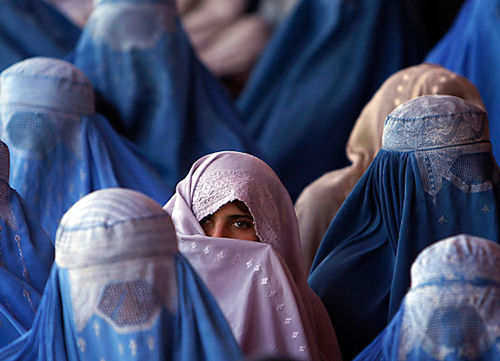RASC News Agency: A Taliban spokesperson for the Ministry for the Propagation of Virtue has clarified that an adult woman is allowed to speak with another woman, emphasizing that such communication is not forbidden under Sharia law. This clarification comes after previous reports indicated a prohibition on conversations between adult women, allegedly imposed by the Taliban’s Minister of Promotion of Virtue. On Saturday, November 9, a Taliban official told AFP, “A woman can indeed speak to another woman,” distancing the ministry from the earlier statements that purportedly restricted adult women from talking to each other.
Earlier, media reports suggested that Afghanistani women were being denied the right to converse with one another, based on an alleged directive from the Minister of Promotion of Virtue. This report follows a disturbing trend of increasing restrictions on Afghanistani women since the Taliban’s return to power. Saeed al-Islam Khyber, spokesperson for the Ministry of Propagation of Virtue and Prevention of Vice, emphasized that “women should be able to interact with each other socially, as they have specific needs and roles within their communities.”
In contrast, the Taliban’s Minister of Promotion of Virtue previously issued statements suggesting that women should avoid conversation with each other even during prayer, advising that women use hand gestures instead of speaking aloud in communal prayer settings. Since regaining control over Afghanistan, the Taliban have imposed an array of restrictions on women, including a recent decree that deems women’s voices “indecent” and mandates that they be silenced in public spaces.
Since 2021, the United Nations has accused the Taliban regime of enforcing “gender apartheid,” asserting that the group is systematically erasing Afghanistani women from the public sphere. Under current Taliban mandates, women are prohibited from pursuing education beyond the elementary level, entering public parks, gyms, or salons, and, in most cases, leaving their homes without a male escort.
A recent decree has also banned women from singing or reciting poetry publicly; these and other restrictions are part of the Taliban’s rigid interpretation of Islamic law. Women are further advised to “veil” both their voices and physical presence outside their homes, reinforcing an oppressive standard of invisibility for women in public life.






